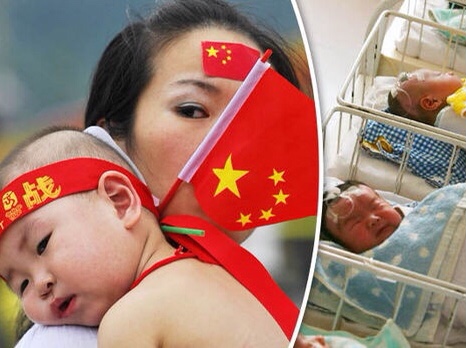The Chinese government encourages a family to have more than one child, and it seems too late to persuade young couples to accept this idea.
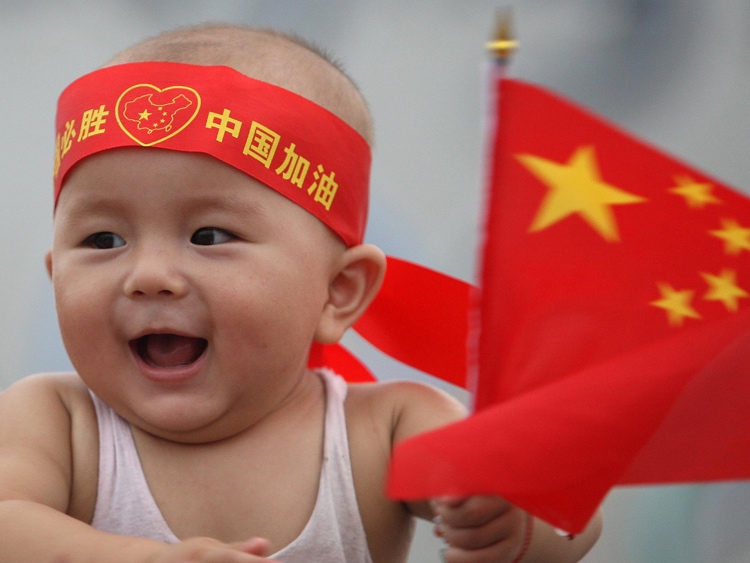
For Tingting Yang, 37, the idea of having a second child is enough to drive her crazy. Usually, from 5:30 in the morning to 11:30 in the evening, she is quite busy. Not only to preparing three meals a day for her children and her husband, taking her 8-year-old daughter to school and tutoring her to finish her homework, she also runs an online clothing company.
“Lying in bed for a few minutes is a delusion to me!” She said. She stood at the table, her daughter was playing mobile games, and the table was filled with plates and chopsticks after dinner, all of those things were waiting for her to clean up.
In addition to taking care of her daughter’s daily life, she is also very worried about whether she has done enough to make her daughter “not fall behind at the starting line”. She paid her daughter piano lessons and ballet lessons for every week, as well as extra math lessons and English tutoring for every day. She will help him prepare for the upcoming course two weeks before the end of each holiday. Sometimes, her daughter’s homework is too much, Yang will stay up with her until midnight.

“Chinese children are under too much pressure of competing with their peers. If you don’t study hard and get an A in every subject, you won’t get a chance to study at a good university. Graduating from a lower standard university means you are not able to find a decent job”, she said, expressing apparent anxiety when discussing whether to consider having another child. Four years ago, the Chinese government imposed a mandatory ban on having a second child. “I’m afraid that if we have a second child in our family, I will not have the time and energy to take care of him and educate him well.”.
The proposal and implementation of the second-child policy come from the shrinking and aging population. The Chinese government is trying to create a baby boom after the Malthusian family planning system, known as the one-child policy, was implemented for more than 30 years. Since 2013, Chinese policymakers have decided to gradually release the restrictions on family size and encourage young parents to have two children. By 2016, these restrictions were completely lifted, which means any couple can have a second child. Under the active propaganda, local officials are trying to provide subsidies and incentives for parents who intend to have more children.
But these rescue efforts seem to have come too late. China’s birth rate has continued to decline, and this trend is hard to change for a long time, because families like Ting have decided not to have more children. With the improvement of education level and income level, more and more Chinese young people choose to marry and have children at a later time. In addition, with the awakening of women’s rights, more and more Chinese women also begin to resist government propaganda and family pressure. Therefore, experts conclude that the one-child policy, which has existed for decades, will continue to affect Chinese society.

“China’s second-child policy is late at least 28 years,” said Fuxuan Yi, a senior scientist at the University of Wisconsin in Madison and a longtime critic of the family planning policies.
According to the warning of demographers, China’s population will face a reduction in the next decade, which may have a huge impact on this country named the world’s second largest economy. Last year, China’s birth population was just 25.23 million, below the official forecast of 21 to 23 million. Moreover, the birth rate has dropped to the lowest level since 1949.
By 2050, the elderly aged over 60 will account for one third of the total population, which not only brings serious pressure to the national service, but also brings great pressure to the young people who need to take care of the old. “Because of these stubborn population control policies, a great country with thousands of years of history and splendid civilization is rapidly degenerating into a small group of the old and the weak,” Yi said.
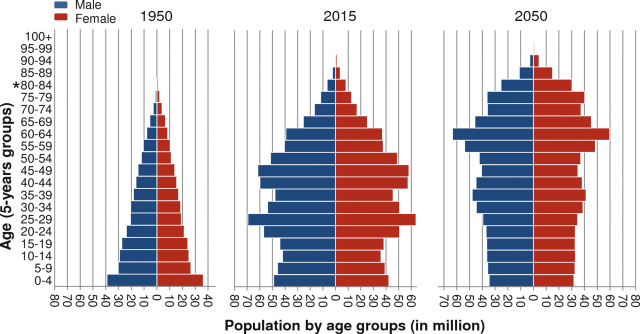
This trend is most pronounced in China’s second and third-tier cities. Because of the strict family planning policy and the slow economic development in these areas, the birth rate in these areas is also low. In southwest China inland residents of the city of Chengdu, a provincial capital of sichuan, the reason why a lot of families refused to have a second child is very obvious and simple — the economy.
Since China’s reform from 1979, the economy of coastal areas has developed rapidly, and the imbalance between coastal and inland areas has become more and more obvious. “First-tier cities like Beijing, Shanghai, Guangzhou, and Shenzhen are all moving forward, but small and medium-sized inland cities are standing still.” Yun Zhong, 35, works for a state-owned enterprise in Chengdu. “Very few people will have children because the economy is too bad, we can not afford those expenses.”
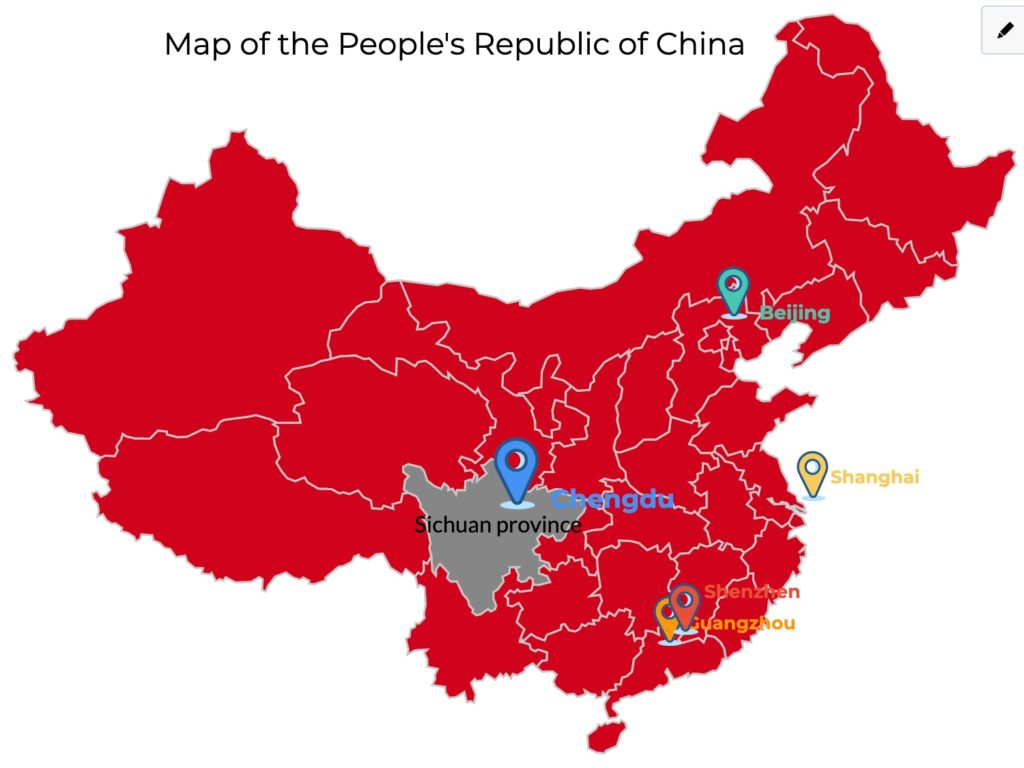
The depressed economy but high housing prices in the southwest are the main reason why Zhong and his wife decided not to have a second child. Their salaries have not increased in four years. Last year, they bought their first apartment, and at the same time his son enrolled in a local kindergarten, 50% of this couple’s income will go toward their little son’s living expenses, tuition, extra tutoring classes, and activities. The rest of the income, except for the couple’s basic daily expenses, is almost entirely used to pay off the house loan.
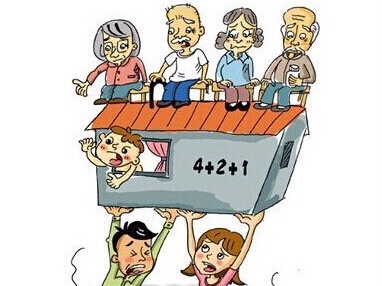
Last year, the Chengdu government published a population development plan that included encouraging two children to boost the province’s birth rate. The government has promised to subsidise families with two children and encourage employers to support women returning to work after childbirth.
Parents in Chengdu say they have noticed an increase in care facilities in public places like parks and shopping malls, but the families have yet to receive any tangible support from the government, such as subsidies. “In the recent years, we have always heard about that the government was going to take measures to help us, but these measures were only ‘hearsay’. It is a perfect lie right?.” Zhong says.
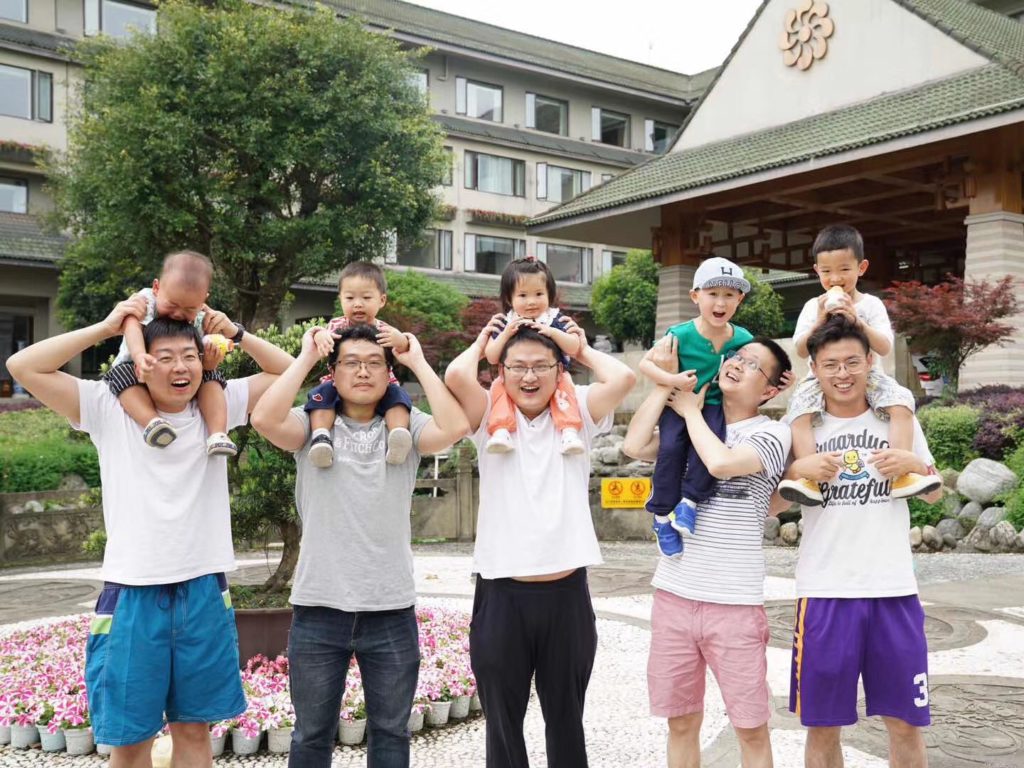
The government’s propaganda has also raised hackles. “The People’s Daily, which is known as the mouthpiece of the Chinese government, wrote in an article last year. “The birth of a child is not only about your family, but also about the development of our country.”
“When you don’t need children, you force us to get sterilized,” one internet user commented. “When you need more people for economical development, you force us to give birth. What do you think we are?”
The government is also trying to encourage women to have more children by cajoling them. The All-China Women’s Federation, one of the government’s departments, has launched a campaign called “beautiful families” to celebrate Women who give birth and take care of children.
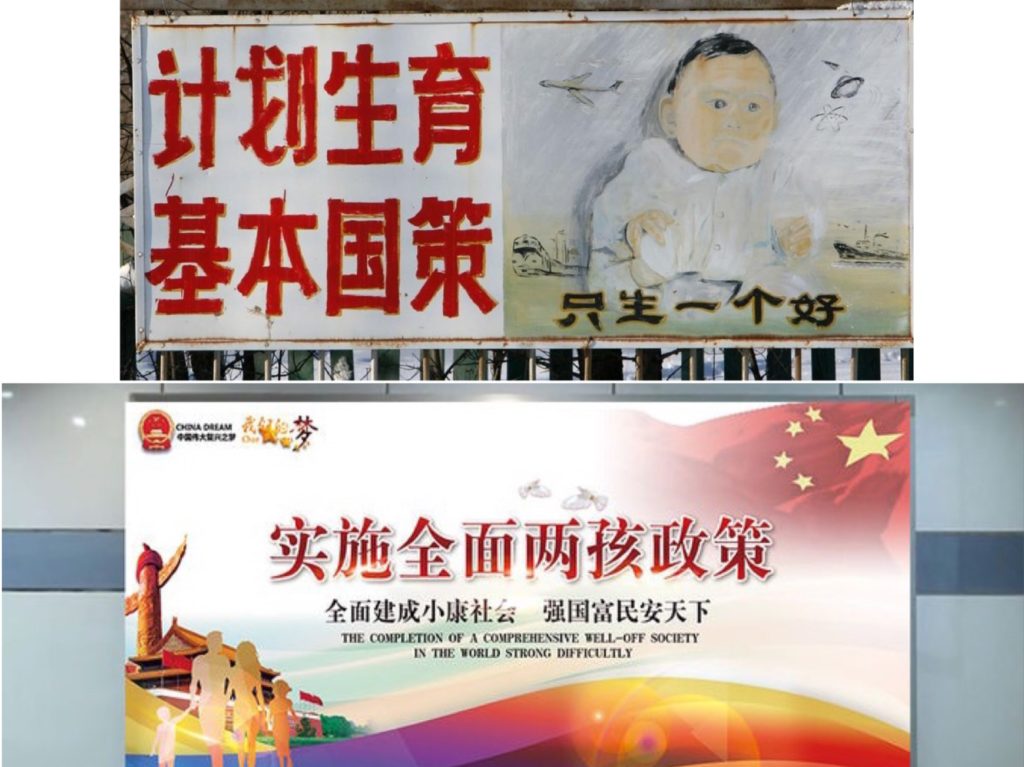
the government propaganda in 2018( fully implement the two-child policy–the completion of a comprehensive well-off society in the world story difficulty)
The women, however, do not seem to appreciate it. More and more women are resisting government and social pressure. Ye Liu, a sociologist at king’s college London, interviewed Chinese women in their 30s and 40s. When the second-child policy was implemented in 2016, their first child was no longer required for them to spend so much time and energy on, and their career was in the prime time. Many people were not only unhappy about the new policy, but also felt anxious.
“Employers will never bless you just because you are going have a second child,” Ye said. A third of respondents said they would prefer to focus on work. “They feel like they’ve become a national experiment. They were once the guinea pigs of the country’s one-child policy, and now the second-child policy is a new one. They feel that their lives will always be an experiment for the country.”He said.

An education and training institute in central Chengdu Xin Dong Fang offers children of all ages high-end help with their studies, including course tutoring, foreign language learning, and hobbies. Limin Peng, a population expert at Sichuan University, says this is part of the Chinese “quality over quantity” approach to child-rearing, in which families invest all their resources in one child for “focused” training. Of the 567 children the company enrolled in school last year, only 10 had families with more than two children, according to this company.
For many families, they prefer to use all the resources they have to cultivate a more competitive child. Yang, on the one hand, sent her daughter to a lot of extracurricular tutoring classes, on the other hand, worried about her daughter’s stress. She has read many news reports that many children are under so much pressure that they choose to run away from home or even kill themselves. She tries to find spare time in her busy schedule to take her daughter to theme parks and buy the barbie dolls she likes. However, when she finds that her daughter’s score has dropped a few points in the exam, she becomes anxious again. “I should have let her study a few more minutes.”
